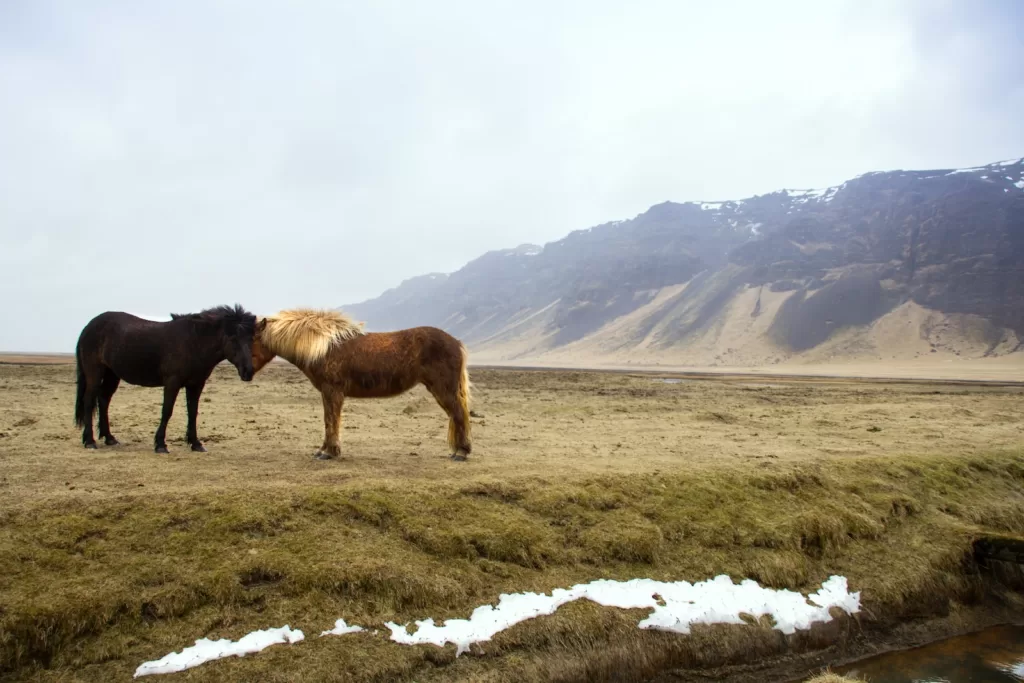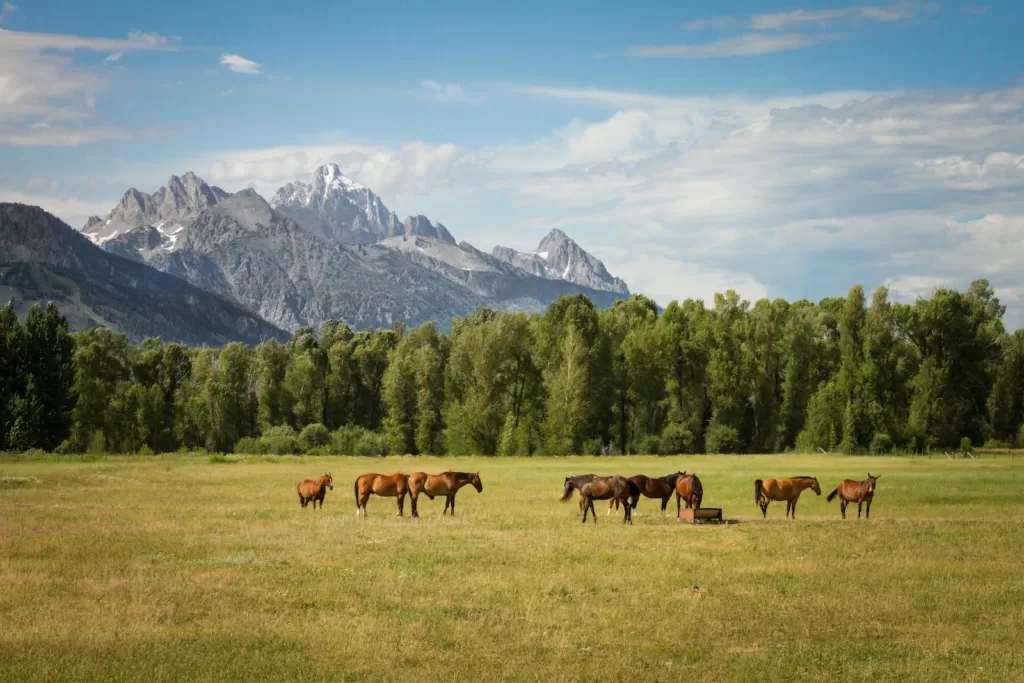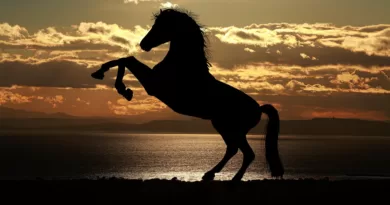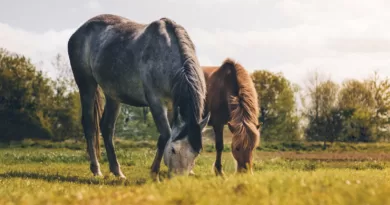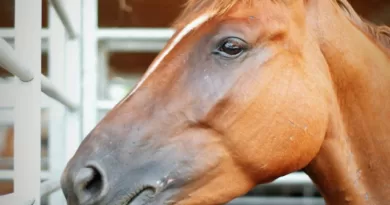How Many Years Do Horses Live: Unlocking Equine Longevity
Intoduction
Horses, majestic creatures that have been our companions throughout history, have always captivated our hearts with their grace, strength, and beauty. Whether you’re an avid equestrian or simply curious about these magnificent animals, one common question often arises: “How many years do horses live?” In this extensive guide, we’ll delve into the world of equine longevity, exploring the factors that influence a horse’s lifespan, answering frequently asked questions, and providing insights into ensuring your horse lives a long and healthy life.
The Lifespan of Horses: A Fascinating Journey
Horses are incredible animals, known for their diverse breeds, unique personalities, and remarkable abilities. Understanding their lifespan is essential for any horse owner or enthusiast. So, let’s begin our journey by addressing the central question: how many years do horses live?
How Long Do Horses Typically Live?
Horses, like humans, can live a significant range of years, depending on various factors. On average, the lifespan of a horse ranges from 25 to 30 years. However, this is a general estimate, and many horses live well beyond their thirties. In fact, there have been documented cases of horses living into their forties and even fifties!
Factors Influencing Equine Longevity
The lifespan of a horse is influenced by a multitude of factors. Let’s explore some of the key elements that determine how long a horse may live:
1. Breed
Different horse breeds have varying lifespans. Smaller breeds tend to have longer lifespans, often surpassing 30 years. Larger breeds, such as draft horses, may have shorter lifespans, typically ranging from 20 to 25 years.
2. Genetics
Genetics play a crucial role in determining a horse’s longevity. Some bloodlines are more predisposed to certain health issues, while others have a genetic advantage for a longer, healthier life.
3. Diet and Nutrition
Proper nutrition is vital for a horse’s health and longevity. A balanced diet that meets their specific needs helps prevent various health issues and promotes a longer life.
4. Exercise and Activity
Regular exercise and ample turnout time are essential for a horse’s physical and mental well-being. Exercise helps prevent obesity, muscle atrophy, and joint problems, contributing to a longer life.
5. Veterinary Care
Routine veterinary care, including vaccinations, dental exams, and wellness checks, is critical for maintaining a horse’s health. Timely medical intervention can prevent or manage health issues that may affect lifespan.
6. Environment
The living environment has a significant impact on a horse’s longevity. Clean, well-maintained stables and pastures with appropriate shelter are essential for their health and comfort.
7. Parasite Control
Effective parasite control measures, including deworming, are crucial to prevent internal parasites from compromising a horse’s health.
8. Dental Care
Regular dental care, such as floating, ensures proper chewing and digestion, which can contribute to a longer life.
9. Lifestyle
A horse’s lifestyle, including social interactions with other horses and mental stimulation, can affect their overall well-being and happiness, which in turn can influence their longevity.
See Also: How long do horses live? Amazing Facts About Horses’ Life
Frequently Asked Questions about Horses’ Lifespan
Now that we’ve explored the factors that affect how long horses live, let’s answer some frequently asked questions about equine longevity:
Q1: Can horses live longer in the wild than in captivity?
In the wild, horses face natural challenges like predation and limited access to resources. While wild horses may have shorter lifespans, they often live in line with their genetic potential. In captivity, horses benefit from protection and care, potentially leading to longer lives.
Q2: What are the most common health issues that affect a horse’s lifespan?
Horses can experience various health issues, including lameness, dental problems, colic, and respiratory issues. Timely veterinary care and preventive measures can help manage these issues and extend a horse’s life.
Q3: How can I ensure my horse lives a long and healthy life?
To ensure your horse enjoys a long and healthy life, focus on providing proper nutrition, regular veterinary care, exercise, and a safe, comfortable living environment. Additionally, consider their mental and social needs, as these factors contribute to overall well-being.
Q4: Are there any specific breeds known for exceptional longevity?
While some smaller horse breeds tend to live longer, exceptional longevity can be found within various breeds. It’s essential to consider the individual horse’s genetics, care, and lifestyle.
Q5: What is the record for the oldest living horse?
The record for the oldest living horse is held by a horse named “Old Billy,” an English barge horse that lived to be an astounding 62 years old. This remarkable horse’s longevity serves as a testament to the potential for horses to live well beyond the average lifespan.
Q6: Can a horse’s lifestyle affect its lifespan?
Yes, a horse’s lifestyle can significantly impact its lifespan. Horses that receive proper care, exercise, social interaction, and mental stimulation tend to live longer and healthier lives compared to those that are neglected or isolated.
Q7: Are there any specific age-related health concerns for older horses?
As horses age, they can develop age-related health concerns such as arthritis, dental issues, and a decline in immune function. Regular veterinary check-ups and adjustments to their care routine can help manage these issues and ensure a comfortable life in their golden years.
Q8: How does a horse’s gender affect its lifespan?
Gender can influence a horse’s lifespan to some extent. In general, mares tend to live slightly longer than stallions, primarily because stallions may engage in more risky behaviors due to their hormonal urges. However, individual care and genetics play a more significant role in determining lifespan.
Q9: Do different horse breeds have different average lifespans?
Yes, different horse breeds have varying average lifespans. Smaller horse breeds, such as ponies, tend to live longer, often surpassing 30 years. Larger breeds, like draft horses, may have shorter lifespans, typically ranging from 20 to 25 years. However, exceptions exist within each breed.
Q10: Can you provide tips for maintaining an older horse’s quality of life?
Absolutely! To ensure your older horse enjoys a high quality of life, consider providing softer feed if they have dental issues, adjust their exercise routine to accommodate their needs, provide shelter from extreme weather, and offer companionship to prevent loneliness. Consult your veterinarian for personalized guidance.
Q11: What are the signs of a horse nearing the end of its life?
Signs that a horse may be nearing the end of its life include severe weight loss, chronic pain, difficulty standing or lying down, inability to eat or drink, and loss of interest in its surroundings. When these signs become apparent, it’s essential to consult with a veterinarian to make appropriate decisions regarding end-of-life care.
Q12: How can I calculate a horse’s “horse years” to human years?
There is no precise formula to convert a horse’s age to human years, as it can vary based on breed and individual health. However, a general rule of thumb is that the first two years of a horse’s life roughly equate to 18 human years each, and after that, one horse year is approximately equivalent to 3-3.5 human years.
Q13: Are there any cultural or historical beliefs associated with horses’ longevity?
Throughout history, horses have symbolized strength, freedom, and nobility in many cultures. Some cultures believed that certain horse colors or markings were associated with longevity, while others considered horses to be symbols of endurance and longevity themselves. These cultural beliefs have contributed to the enduring fascination with horses and their lifespan.
Conclusion: Nurturing the Gift of Equine Longevity
In the quest to understand how many years horses live, we uncover the intricate web of factors that influence their lifespan. From genetics to diet, exercise to veterinary care, these elements work together to shape the length and quality of a horse’s life.
As horse enthusiasts and caretakers, it’s our responsibility to ensure that these magnificent creatures have the opportunity to thrive and enjoy a long and fulfilling life. By providing the best possible care, we can unlock the secrets of equine longevity, creating a world where horses continue to grace us with their presence for many years to come.
So, the next time you find yourself gazing at a horse in awe, remember that their lifespan, like their spirit, can be truly remarkable. Cherish the time you have with these noble creatures, for it is a gift that spans the years and leaves an indelible mark on your heart.
Do you have more questions about horses’ lifespan or want to share your experiences with these incredible animals? Feel free to leave your comments below, and let’s continue the conversation about the beauty and mystery of equine longevity!
Enjoyed this article? You May Also Like:
- Learn in 5 minutes about Cryotherapy for Horses
- Penicillin in Horses; Impeccable Guide in 10 minutes
- Excede Antibiotic For Horses, Fantastic Facts in 5 minutes
- The Science of Oxytocin in Horses: How This Hormone Influences Equine Behavior
- Can Horses Swim? Everything You Need To Know About Horse Swimming


